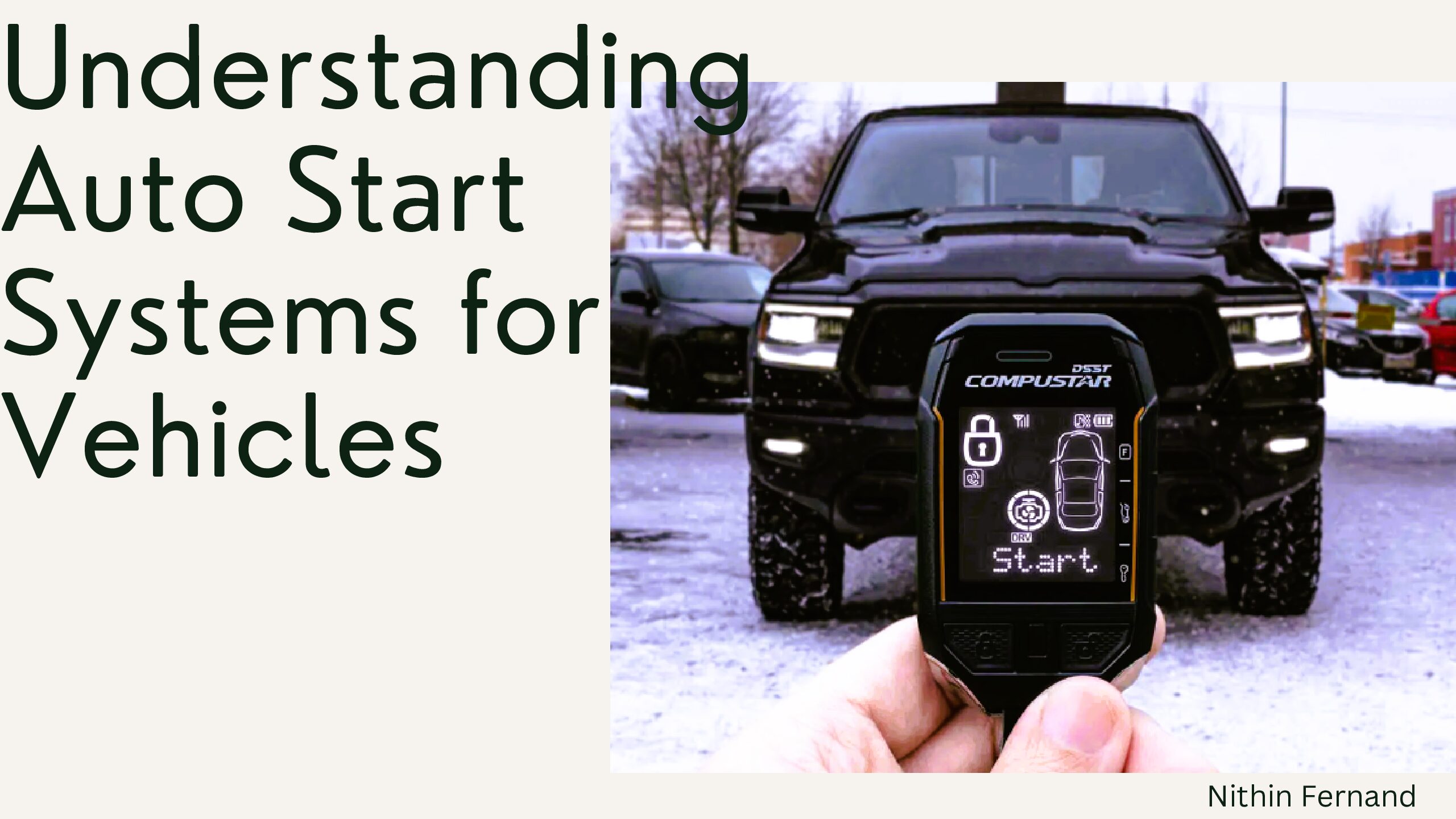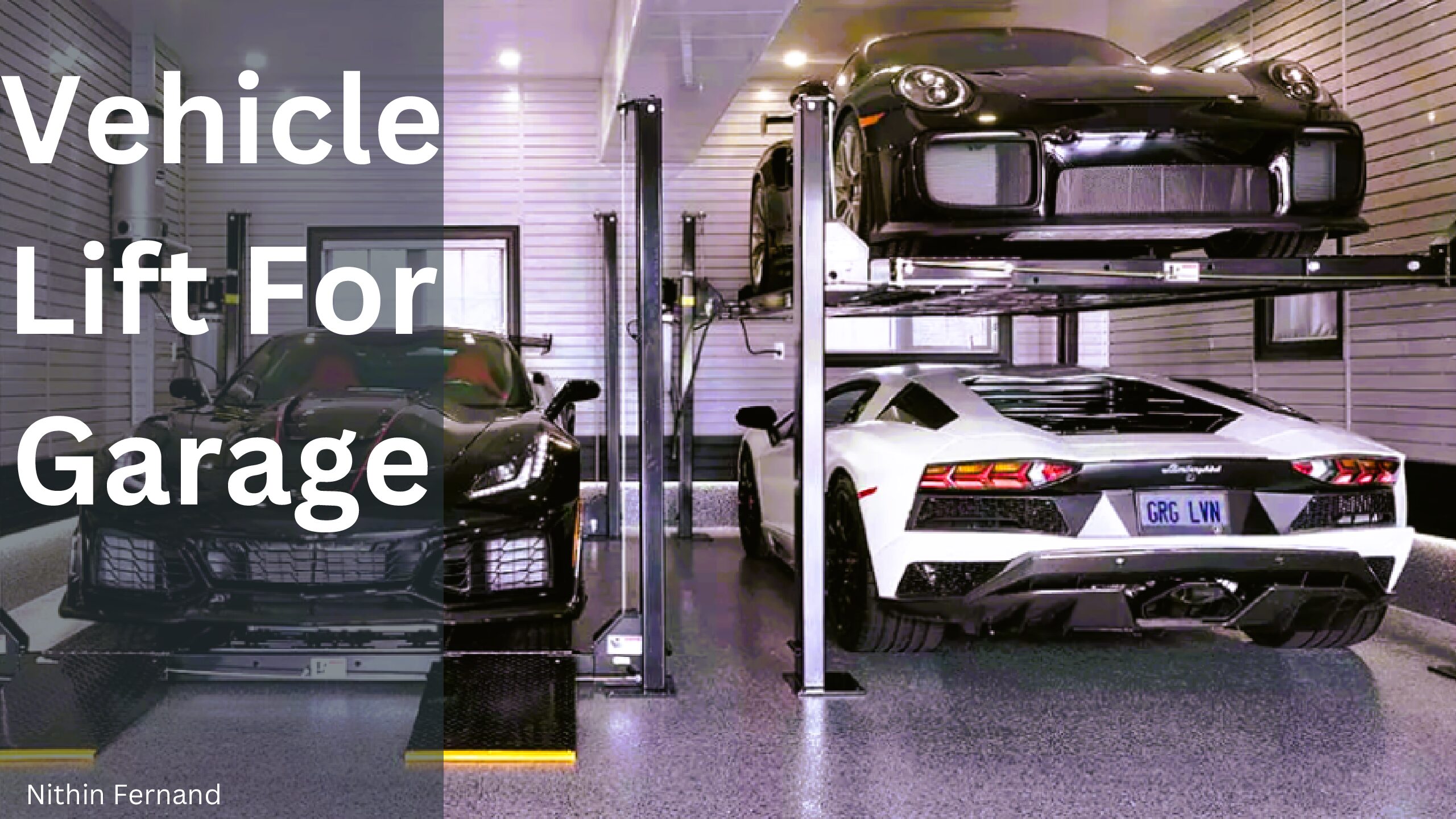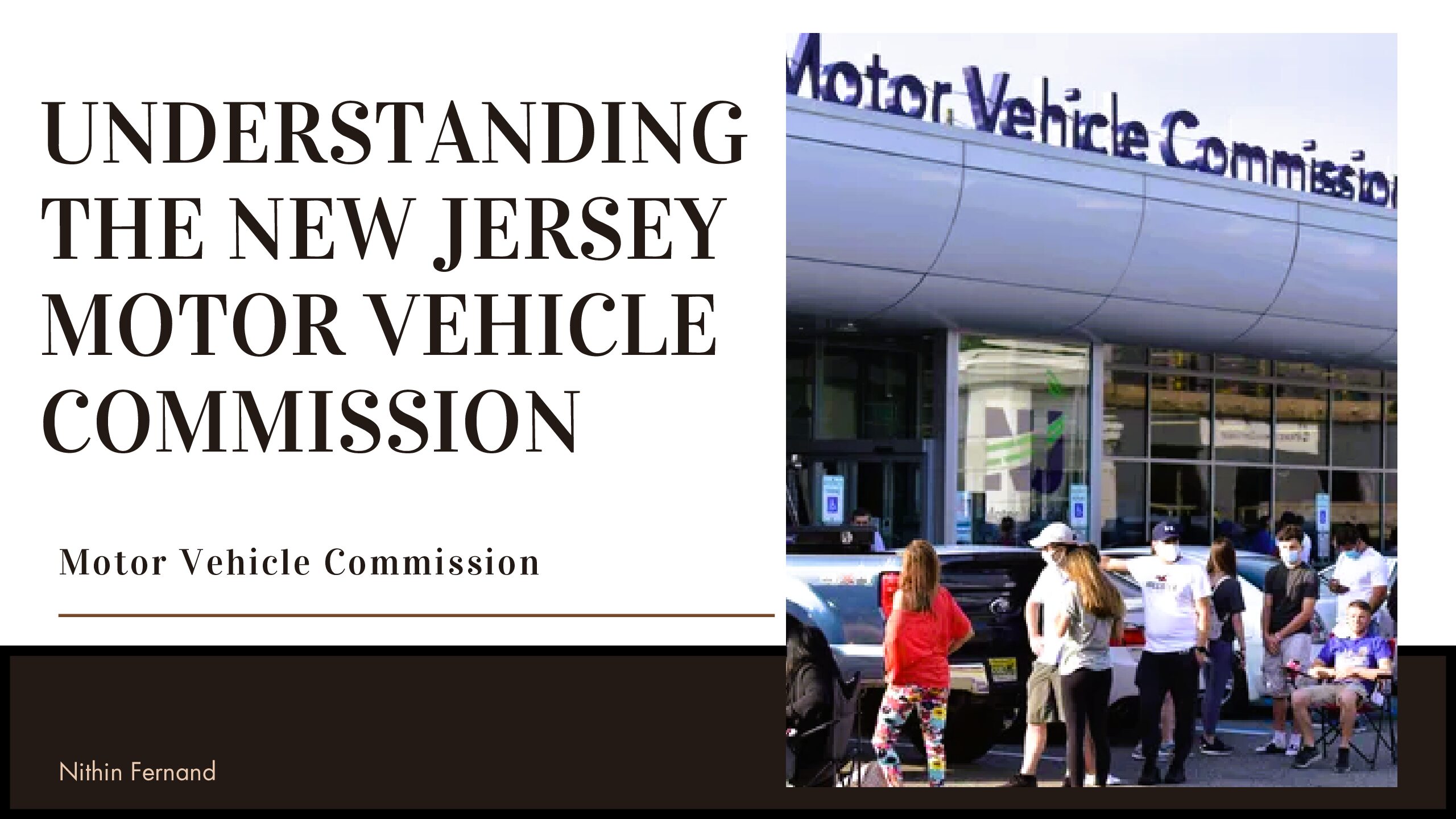Understanding Auto Start Systems for Vehicles 2024
Auto start systems, also known as remote start systems, are technological advancements that allow car owners to start their vehicles from a distance using a remote control or smartphone app. These systems offer a range of benefits, including preconditioning the vehicle for optimal comfort by adjusting temperature settings before the driver enters. Initially, auto start systems were considered luxury features, but their availability in aftermarket products and as factory-optional equipment has increased their popularity among a wider array of consumers.
Over the past decade, there has been a significant surge in demand for automotive convenience technologies like auto start systems. This growth is driven by consumers’ desire for increased comfort, enhanced security features, and the simple convenience of technology that fits seamlessly into their daily routines.

The purpose of this article is to provide a comprehensive understanding of vehicle auto start systems. It aims to explore how these systems work, the advantages they offer, common concerns, and considerations for those interested in installing an auto start system in their vehicle. By the end of this article, readers will have a clear grasp of why auto start systems are becoming increasingly integral to modern vehicle design and user experience.
Table of Contents
What is an auto-start system?
An auto start system is a technology integrated into vehicles that allows the engine to be started remotely without the need for the driver to physically be in the car. The basic functionality of these systems typically involves a remote control or a smartphone app that communicates with the vehicle’s engine interface. By pressing a button on the remote or app, the system activates the ignition and other necessary components, such as the heating or cooling systems, so the vehicle is comfortable when the driver is ready to enter.
Key Components Involved:
- Remote Control or Smartphone App: The user interface that allows the driver to start the vehicle remotely. Advanced systems now use smartphone apps that offer additional features like status updates, GPS location, and more.
- Engine Interface Module: Acts as the bridge between the remote control signal and the vehicle’s ignition system. It ensures the necessary safety checks are completed before firing up the engine.
- Keyless Entry System (optional): Often integrated with auto start systems for added convenience, allowing door locks to be controlled remotely as well.
Types of Auto Start Systems
When considering auto start systems, it’s important to understand the distinctions between factory-installed and aftermarket systems, as well as one-way versus two-way systems.
Factory-Installed Systems vs. Aftermarket Systems:
- Factory-Installed Systems: These systems are integrated into the vehicle during manufacturing. They are typically optimized for the specific vehicle model, ensuring a seamless fit and better compatibility with other onboard electronics.
- Aftermarket Systems: Installed after the vehicle has been manufactured, these systems offer flexibility and are available for a wide range of brands and models. They can sometimes offer more advanced features than factory systems, though they may require professional installation to ensure they operate correctly and safely.
One-Way vs. Two-Way Auto Start Systems:
- One-Way Systems: These systems send commands from the remote or smartphone to the vehicle, such as starting the engine or unlocking the doors, but do not provide feedback to the user. This means there is no confirmation if the command has been successfully executed.
- Two-Way Systems: These systems include feedback to the user, confirming whether the vehicle has responded to the command, such as if the engine has started or if the doors are locked. This feedback can be visual (LED indicators) or audible alerts on the remote or smartphone.
Benefits of Auto Start Systems

Convenience:
- Remotely starting your car allows for easy operation, particularly beneficial in extreme weather conditions, such as icy winters or scorching summers. This feature enables drivers to start their cars from a distance, eliminating the need to brave harsh weather just to get inside a warm or cool vehicle.
Comfort:
- With auto-start systems, you can pre-warm the car in winter or pre-cool it in summer. This ensures that the vehicle’s interior temperature is comfortable when you’re ready to drive, enhancing the overall driving experience and making your daily commute much more pleasant.
Safety:
- Remotely starting your vehicle allows you to ensure that the vehicle is secure before entering. You can check your surroundings and start the engine from a safe distance, reducing the risk of potentially dangerous situations, especially in less secure areas or during late hours.
Additional Features:
- Advanced auto-start systems come equipped with additional features such as GPS tracking, smartphone control, and notifications. This technology can enhance security further, provide vehicle location services, and allow for greater interaction with the vehicle, such as locking/unlocking doors or checking vehicle status remotely.
Considerations Before Installation
Compatibility:
- It’s crucial to ensure that the auto start system is compatible with your vehicle’s make and model. Different vehicles may have specific electrical configurations, and not all systems are designed to work with every type of car. Researching compatibility is essential before purchase.
Impact on Warranty and Insurance:
- Installing an aftermarket auto start system can potentially impact your vehicle’s warranty or insurance coverage. It’s important to check with both the vehicle manufacturer and your insurance provider to understand any implications that may arise from installing such a system.
Installation Costs and Process:
- The cost of purchasing and installing an auto-start system can vary widely based on the type of system, additional features, and labor charges. Understanding the total cost, including installation fees, is necessary for making an informed decision. Additionally, knowing the installation process can help anticipate the time required without your vehicle.
Finding a Reputable Installer:
- Choosing a trustworthy and experienced installer is critical for ensuring that the auto-start system is correctly and safely installed. Researching installers, reading reviews, and seeking recommendations can help you find a reputable professional who guarantees quality work and reliable service.
Potential Challenges and Solutions
Troubleshooting Common Issues:
- Signal Interference:
- Challenge: Signal interference can prevent the remote start system from functioning properly, particularly in urban environments with many electronic devices or structures that may block the signal.
- Solution: To mitigate this, users should ensure the remote starter has a strong and reliable transmitter. Some systems offer long-range capabilities or can use a smartphone app to bypass traditional RF signal limitations. Keeping the receiver’s location in a less obstructed area of the vehicle can also help.
- System Failure:
- Challenge: Auto start systems can sometimes fail to start the vehicle due to electronic malfunctions or improper installation.
- Solution: Regular maintenance checks and diagnostics can help identify potential issues before they become serious. If problems persist, consulting with an experienced installer or technician for troubleshooting can ensure the system is functioning as intended.
Dealing with Battery Drain:
- Challenge: Continuous use of the remote start system may lead to battery drain, especially in vehicles with older batteries or those not designed to handle extra electronic components.
- Solution: To minimize battery drain, it’s advisable to use high-quality batteries and ensure they are regularly tested and maintained. Installing a system with battery-saving features or a designated battery management system can also help monitor and control power usage effectively.
Legal Considerations and Regulations:
- Challenge: Laws and regulations surrounding remote start systems can vary by region, with some areas imposing restrictions on their use due to safety concerns or emissions standards.
- Solution: Before installation, it’s vital to familiarize yourself with local laws regarding remote start use. Consulting local authorities or automotive professionals can provide clarity around legal stipulations. Staying updated about any changes in regulations is also recommended to ensure compliance.
Vehicle Key – Most People vehicle keys buying and repairing Companies in 2024
Nithin Fernand
Future Trends in Auto Start Technology
Integration with Smart Home Systems and IoT:
- The future of auto start technology is likely to see more integration with smart home devices and the Internet of Things (IoT). This could allow users to control their vehicle’s systems through smart home assistants or mobile applications that synchronize with their home devices, enabling seamless functionality. For example, a user might be able to start their car remotely based on their home thermostat settings or synchronize it with their daily schedule.
Enhanced Security Features and Customization:
- As security concerns continue to rise, future auto start systems may incorporate more advanced security features such as biometric verification (fingerprint or facial recognition), GPS geo-fencing, and real-time alerts for unauthorized access. Customization options will also likely expand, allowing owners to tailor their remote start settings to their personal preferences and needs.
Developments in Sustainability and Energy Efficiency:
- With a growing focus on sustainability, future auto-start technologies may prioritize energy efficiency and eco-friendliness. This could involve developing systems that use less power or incorporating alternative energy sources, such as solar power. Additionally, manufacturers may design auto-start systems that can work in tandem with electric and hybrid vehicles to optimize battery use and reduce environmental impact.
Conclusion

In summary, auto start systems offer a multitude of advantages that enhance the driving experience, including unparalleled convenience, improved comfort, increased safety, and access to advanced features. By allowing drivers to start their vehicles remotely, these systems facilitate smoother transitions during extreme weather conditions and ensure that the vehicle’s interior is at a desirable temperature before entering. Furthermore, the additional security features that come with many modern systems contribute to peace of mind for vehicle owners.
However, as with any aftermarket technology, there are considerations and potential challenges associated with adopting an auto start system. Issues such as compatibility with your vehicle, the impact on your warranty and insurance, and the possibility of battery drain should be carefully weighed. Moreover, legal regulations regarding remote starters can vary, making it essential to research specific local laws to ensure compliance.
As technology continues to evolve, future trends in auto start systems promise even greater integration with IoT devices, enhanced security features, and a focus on sustainability. Therefore, it’s crucial for prospective users to not only consider the benefits of installing an auto start system but also to evaluate any limitations or challenges it may present.
In conclusion, we encourage readers to conduct thorough research, seek advice from professionals, and assess their personal needs before making a decision about adopting an auto start system. By understanding both the advantages and the potential hurdles, you can make an informed choice that enhances your driving experience without compromising vehicle integrity or your peace of mind.
Additional Resources
To further assist readers in exploring auto start systems, here are some valuable resources for further reading, product reviews, and expert opinions, along with contact information for professionals and installation services.
1. Further Reading:
- Consumer Reports – Remote Start Car Systems: A comprehensive guide on the best remote start systems, including features, pros and cons, and user ratings. Consumer Reports Remote Start Guide
- Car and Driver – Best Remote Start Systems: A detailed overview of various remote start systems, with comparisons and reviews of popular brands and models. Car and Driver Remote Start Reviews
- Automotive News – Trends in Remote Start Technology: An article discussing current trends and emerging technologies in the auto start market. Automotive News Trends Article
2. Product Reviews:
- Amazon – Remote Start Systems: Browse user reviews and ratings on a wide selection of remote start systems available for purchase on Amazon. Amazon Remote Start Systems
- Best Buy – Car Starters: Explore product options and customer feedback on various remote starter models at Best Buy. Best Buy Car Starters
3. Expert Opinions:
- YouTube – Installation Guides & Reviews: Numerous automotive experts and enthusiasts create videos reviewing and demonstrating the installation of auto start systems.
- Search for “remote start system installation” on YouTube for a myriad of helpful guides.
4. Professional Installation Services:
- Metra Electronics: Provides a list of certified installers across the country and offers resources for finding compatible products for your vehicle. Metra Electronics Installer Locator
- Best Buy Car Installation Services: Best Buy offers installation services for various car accessories, including remote start systems. You can schedule an appointment online to consult with their experts. Best Buy Car Installation Services
- Local Automotive Shops: Check local listings or websites such as Yelp or Google Maps to find reputable automotive shops that specialize in car electronics and remote start installations.
By utilizing these resources, readers can make well-informed decisions regarding their potential investment in auto start systems, ensuring a smoother transition to enjoying all the benefits they have to offer.
FAQs
1.Can I equip my car with auto start?
The good news is that you can equip a car with remote start, however not every vehicle has this option. Cars manufactured after the middle of the 2000s typically come with dealer-installed remote start systems.
2.Installing auto start will cost how much?
The parts typically cost between $100 and $500, and an expert can install it in one to three hours.







